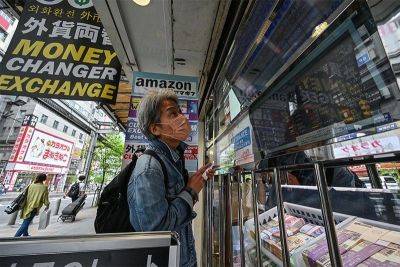Climate finance: What you need to know ahead of COP29
PARIS, France — Developing countries will need trillions of dollars in the years ahead to deal with climate change -- but exactly how much is needed, and who is going to pay for it?
These difficult questions will be wrestled at this year's United Nations climate conference, known as COP29, being hosted in Azerbaijan in November.
It is the buzzword in this year's negotiations, but there isn't one agreed definition of "climate finance".
In general terms, it's money spent in a manner "consistent with a pathway towards low greenhouse gas emissions and climate-resilient development", as per phrasing used in the Paris agreement.
That includes government or private money channelled into low-carbon investments in clean energy like wind and solar, technology like electric vehicles, or adaptation measures like dikes to hold back rising seas.
But could a subsidy for a new water-efficient hotel, for example, be included in climate finance?
The COPs -- the annual UN-sponsored climate summits -- have never defined it.
The Climate Policy Initiative, a nonprofit research group, estimates that $10 trillion per year in climate finance will be needed between 2030 and 2050.
This compares to around $1.3 trillion spent in 2021-2022.
But in the parlance of UN negotiations, climate finance has come to refer to something more specific -- the difficulties that developing nations face getting the money they need to adapt to global warming.
The line between climate finance and conventional development aid is sometimes blurred.
But experts commissioned by the UN estimate that developing countries, excluding China, will need an estimated $2.4 trillion per year by 2030.
Under a UN accord adopted in 1992, a handful of countries deemed wealthy, industrialised, and the most responsible for global warming were obligated to provide compensation to the rest of the world.
In 2009, these countries -- the United States, the European Union, Japan, the United Kingdom, Canada, Switzerland, Turkey, Norway, Iceland, New Zealand and Australia -- committed to paying $100 billion per year by 2020.
They only achieved this for the first time in 2022. The delay eroded trust and fuelled accusations that rich







